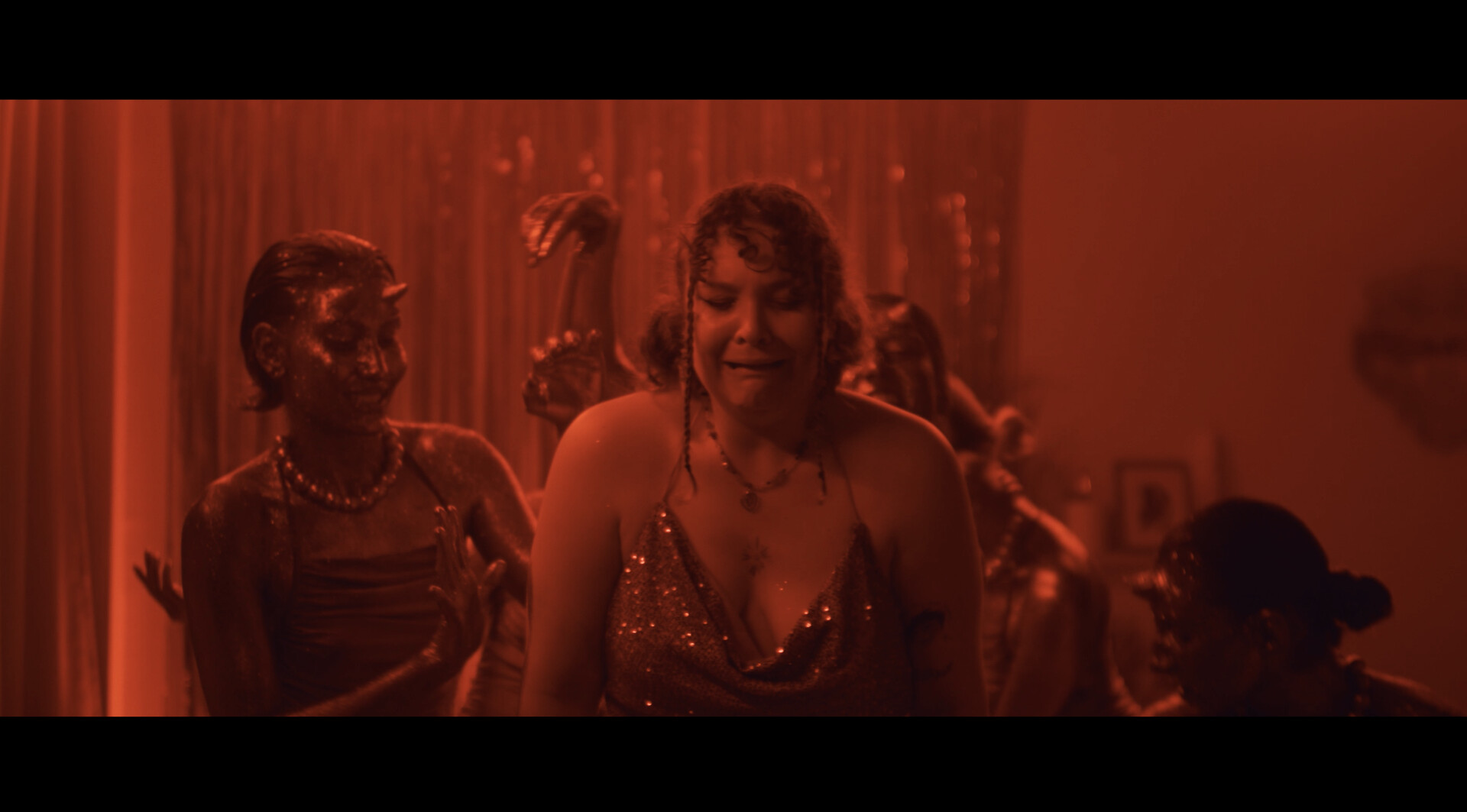CRYBABY
dir. Elif Öner

As one of the characters in Turkish director Elif Öner’s short film “Crybaby” so pointedly puts it: “Not everything is always about you.”
I am an unapologetic fan of HBO’s Girls. What can I say? Watching four privileged women navigate their twenties in New York City speaks to me more than it should. And I can’t think of any female character in modern media with a more inflated sense of self-importance than Lena Dunham’s Hannah Horvath.
As I watched “Crybaby” for the first time, the spirit of Hannah Horvath spoke directly to my body, mind, and soul. “I think that I may be the voice of my generation,” she said. “Or at least a voice. Of a generation.”
And that quote embodies my feelings about “Crybaby” quite aptly. For many emerging artists in the age of the internet, a victim complex is the paintbrush and self-aggrandizement is the canvas.
At the core of the matter, we all have something that we want to say, emotions to convey, words that we think will strike a chord with someone else. Art is the language of connection. What many fail to realize, though, is that most experiences aren’t entirely unique—it is the delivery that entices the observer.
At the beginning of “Crybaby,” we see a video of a much younger Elif, the director and main character, lips pouted and shouting at the people around her at a party without justified cause. It is nothing unusual. Children generally lack the emotional awareness and regulatory tools to appropriately compose themselves. As the short film progresses, however, we realize that Öner (or at least the Öner depicted) has not yet developed these skills, even as an adult. While Elif is the main character and may be purposefully unlikable, I didn’t feel compelled to root for her throughout the short’s runtime. It seems that Öner possessed the awareness that this character is flawed, but we don’t see a complex exploration of why. Instead, Elif’s inexplicable hostility is the cornerstone of the piece.
In many ways, this could be intentional. The main character is named Elif, the footage at the beginning of the short features a young Elif, and the piece was written and directed by Elif. From this, we can assume that the project is a partially autobiographical account of Öner’s experiences.
However, even when art is derived from experience (as almost all art is), audiences need to connect with the premise in some way. While Hannah Horvath is exceptionally annoying, she is also relatable and vulnerable at times. Elif, on the other hand, comes off as unnecessarily hostile and demanding throughout the 17-minute runtime.
“Crybaby” follows Elif as she prepares to embark abroad to get her master’s degree. She arrives at a surprise party where she doesn’t know most of the guests, and her companion mentions that this is because she doesn’t have many friends. Elif proceeds to scold one of her friends for inviting someone that she doesn’t like. She also eats a “special” brownie with some of the guests. In another scene, Elif tells a stranger that she tried to commit suicide by taking pills, and her mother had to take her to the hospital. She concludes the interaction with a candid “nice to meet you.”
Later, Elif’s mother arrives at the party’s doorstep, toting a bag of fruit and a special gift that we later discover is a piece of jewelry. Again, Elif approaches the situation with hostility, and we, as the viewers, lack the interiority to decipher why. Elif rejoins the party and promptly has a panic attack, and her boyfriend arrives at the party late and breaks up with her.
Oh, I forgot to mention that Elif has been hallucinating glitter-drenched demons ever since she stepped foot into the party. While this seems like a detail that should be foregrounded, the plot point is cast aside, as most of the runtime is devoted to Elif’s personal dramas.
In the final sequence of the short, Elif falls asleep next to her friends and is awoken in the middle of the night by a mysterious ambiance. She follows the feeling to another room, and the demons make another appearance. They are dancing, their bodies glistening with horns protruding from their foreheads. Elif joins the demons and begins to cry, as the title would suggest, before erupting into laughter right as the credits roll. Notably, this is the happiest moment that we see her in the short film.
I am never one to say no to a terror-ridden party, and there are elements of “Crybaby” that hark back to Gaspar Noé’s 2018 Climax—the disorienting lighting, drug use, and alarming hallucinations. But “Crybaby” falls short in that it lacks the development that makes even dislikable characters worth rooting for, as the character has no awareness for anyone aside from herself. Instead, it is scattered, disorganized, and generally very gauche. The most horrific elements—the hallucinated demons, paranoia, and hysteria—take a backseat to Elif bad-mouthing her friends, screaming at her mother, and crying about her boyfriend. A more thorough exploration of what these demons symbolize could’ve helped the emotions translate from the screen.
None of this is to say that Öner lacks promise; there are several admirable qualities presented in the short film, including cinematography and concept. However, the material needed to be navigated with a keener awareness of reality—that the world doesn’t bend around the will of one person, especially if that person is as hostile as Öner’s character is portrayed.
Perhaps I was just craving more demons and less drama. Perhaps there was some element that I missed in my multiple viewings of this short. Alternatively, perhaps we could all benefit from a heightened cognizance of the world outside of ourselves.
Not everything is about you, and that is okay!
Kaelyn New is a writer and editor from Denver, Colorado. She recently graduated from Gonzaga University with a dual major in English Writing and Political Science as well as a minor in Women, Gender, and Sexuality Studies. When she isn’t working, she is likely watching horror movies, making music, or spending time with her adopted black cat, Salem, that crossed her path over two years ago.
